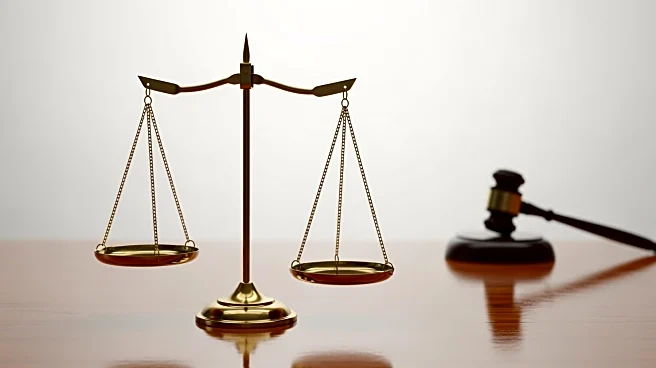What's Happening?
The Supreme Court is scrutinizing the Trump administration's use of emergency powers to impose tariffs, with several justices expressing skepticism. Chief Justice John Roberts highlighted Congress's authority over taxes, challenging the administration's claim
that tariffs are not taxes. The case involves tariffs imposed on imports from countries like China, justified by the administration as necessary to address emergencies such as the opioid crisis and trade imbalances. The justices, including Brett Kavanaugh, questioned the extent of presidential power in imposing such tariffs without explicit congressional approval.
Why It's Important?
This case is pivotal in defining the limits of presidential power in trade policy. A ruling against the administration could restrict the use of emergency powers to impose tariffs, reinforcing congressional authority over taxation. This decision could affect U.S. trade relations and economic strategies, particularly with major trading partners. Businesses and industries reliant on imports are closely monitoring the case, as it could influence future trade costs and regulatory frameworks.
What's Next?
The Supreme Court is expected to deliver a decision by June. The ruling could have lasting effects on the separation of powers and the scope of executive authority in economic matters. Stakeholders, including businesses and policymakers, are preparing for potential shifts in trade policy and economic regulations based on the court's decision.















